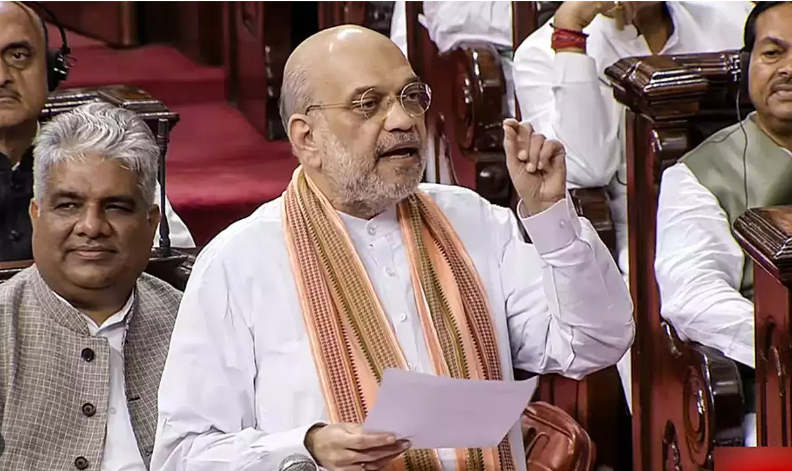On Wednesday, Lok Sabha passed three significant bills aimed at replacing the Indian Penal Code, Code of Criminal Procedure, and Indian Evidence Act.
Responding to the debate on the bills, Home Minister Amit Shah emphasized that the legislations are in line with the spirit of the Constitution. The bills, namely Bharatiya Nyaya (Second) Sanhita 2023, Bharatiya Nagarik Suraksha (Second) Sanhita 2023, and Bharatiya Sakshya (Second) Bill 2023, seek to replace the IPC, CrPC, and the Evidence Act, respectively.
During the debate, most opposition parties refrained from participating, as 97 of their members have been suspended from the House for the remaining winter session due to “misconduct.”
In his reply, Home Minister Amit Shah highlighted that these bills are a significant step towards expediting justice. Drawing attention to a popular Bollywood movie line, he mentioned that ‘tareekh pe tareekh’ (dates after dates) has been a curse on the criminal justice system.
Shah explained the key provisions of the bills, stating that the accused now have seven days to file a plea for acquittal. The judge is required to conduct the hearing within this period, and within a maximum of 120 days, the case would proceed to trial. He emphasized the introduction of a time limit for plea bargaining, reducing punishment if one accepts their crime within 30 days. Additionally, a compulsory provision has been introduced to present all documents within 30 days during trials to avoid delays.
Addressing the financial challenges faced by the poor in accessing justice, Shah noted that the new laws clarify many aspects that contribute to delays in the justice system. The amended bills, introduced in Lok Sabha last week by the Home Minister, aim to replace the Indian Penal Code of 1860, Code of Criminal Procedure (CrPC) of 1973, and Indian Evidence Act of 1872.






















